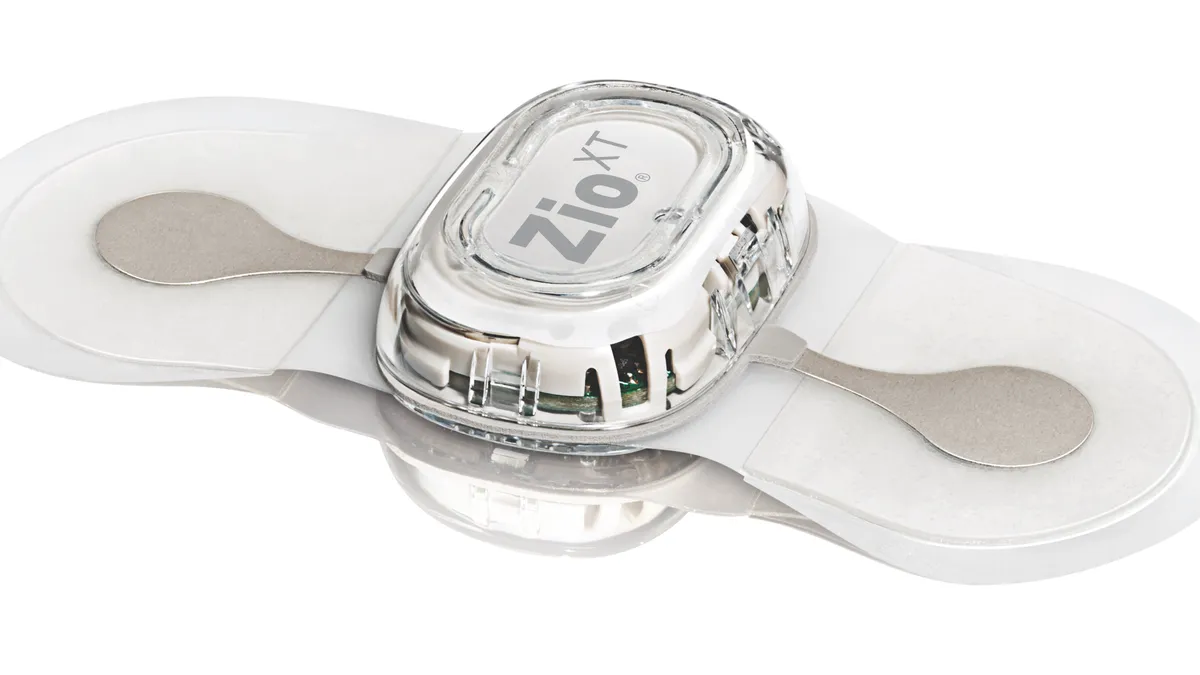Dive Brief:
- An analysis presented at the American Heart Association’s 2022 Scientific Sessions demonstrated the cost effectiveness of using iRhythm’s Zio XT patch to screen for atrial fibrillation. The results showed an incremental cost-effectiveness ratio of $17,000 per quality-adjusted life year gained, the academic standard for measuring how well medical treatments lengthen or improve patients' lives.
- An earlier study found that patients who used iRhythm’s Zio XT heart monitor patch were significantly more likely to visit a cardiologist and receive preventive care for heart conditions than those who were not monitored.
- Scientists who performed the analysis said using the patch will save healthcare systems money by enabling early diagnosis.
Dive Insight:
A follow-up analysis of an earlier three-year study of the wearable sensor from iRhythm, a San Francisco, Calif.-based maker of wearable sensors and associated analytics, showed that systematic screening for atrial fibrillation in an at-risk population with the iRhythm Zio XT patch provided high value from a health economic perspective.
The analysis, titled “Cost-Effectiveness of AF Screening with Two-Week Patch Monitors: The mHealth Screening to Prevent Strokes Study,” evaluated the cost-effectiveness of screening for atrial fibrillation with the Zio XT, a heart monitor worn on a user’s chest, that collects two weeks worth of heart data with an adhesive patch.
Over three years, individuals prescribed Zio XT were more likely than unmonitored individuals to have outpatient visits — including to cardiologists — but less likely to require emergency department visits or hospitalization, the analysis found.
In patient-level projections, the group prescribed Zio XT had slightly better total and quality-adjusted survival (11.91 vs. 11.82 life years, 9.38 vs. 9.30 years).
“We conclude that AFib screening with Zio monitors is likely to both benefit older Americans and provide excellent value to the healthcare system by enabling early diagnosis," said the study’s lead author, Dr. Matthew R. Reynolds, cardiac electrophysiologist at Lahey Hospital & Medical Center in Burlington, Mass., and the Baim Institute for Clinical Research.
The analysis was based on a randomized clinical trial combined with a prospective matched observational cohort study that was published in the Journal of the American Medical Association in 2018 and conducted at the Scripps Research Translational Institute, in a partnership with insurer Aetna and Janssen Pharmaceuticals.
That study found that screening using the Zio XT was linked to increased detection of AFib, greater use of outpatient cardiology care, and a higher rate of initiation of stroke prevention therapy.










